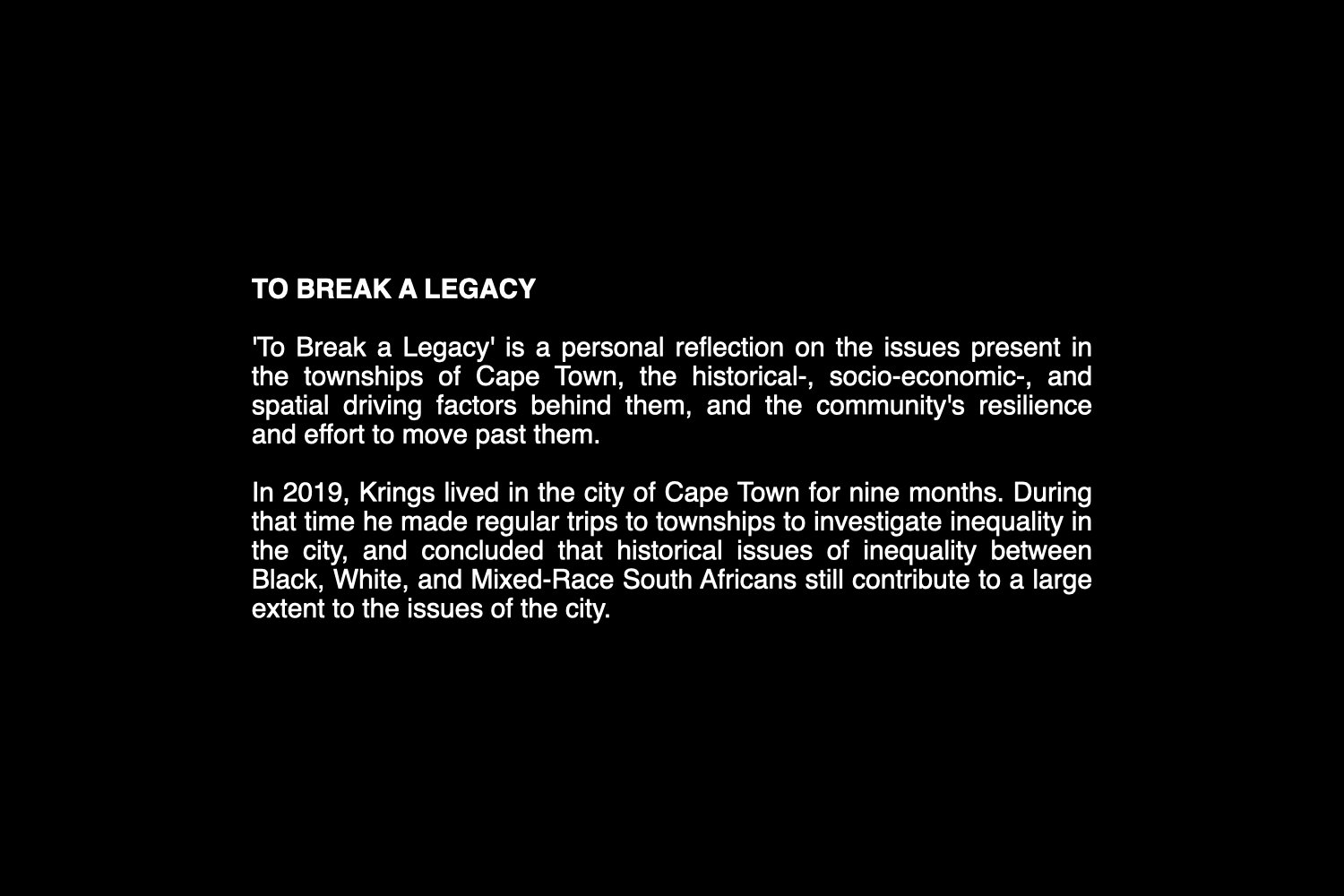

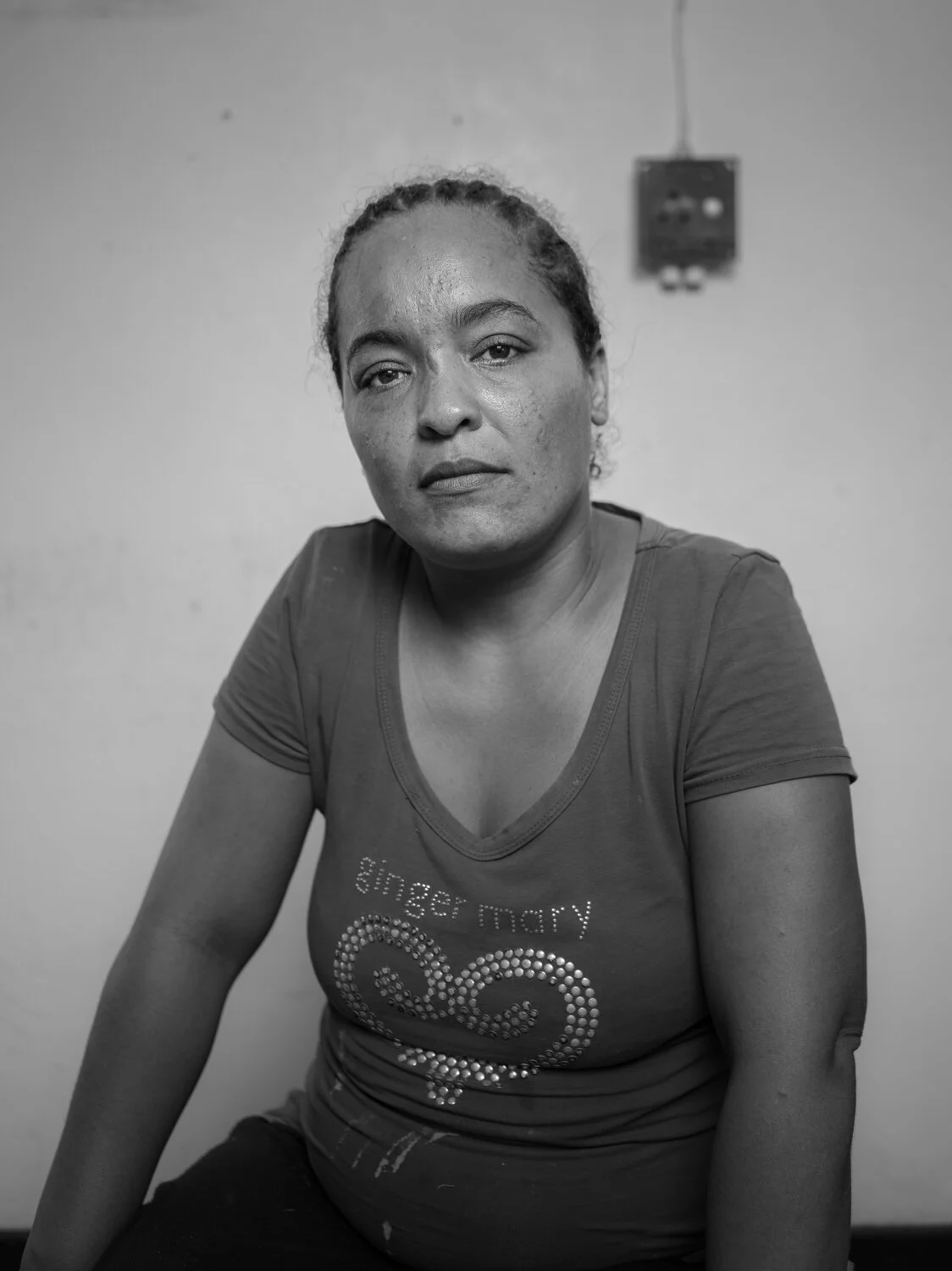



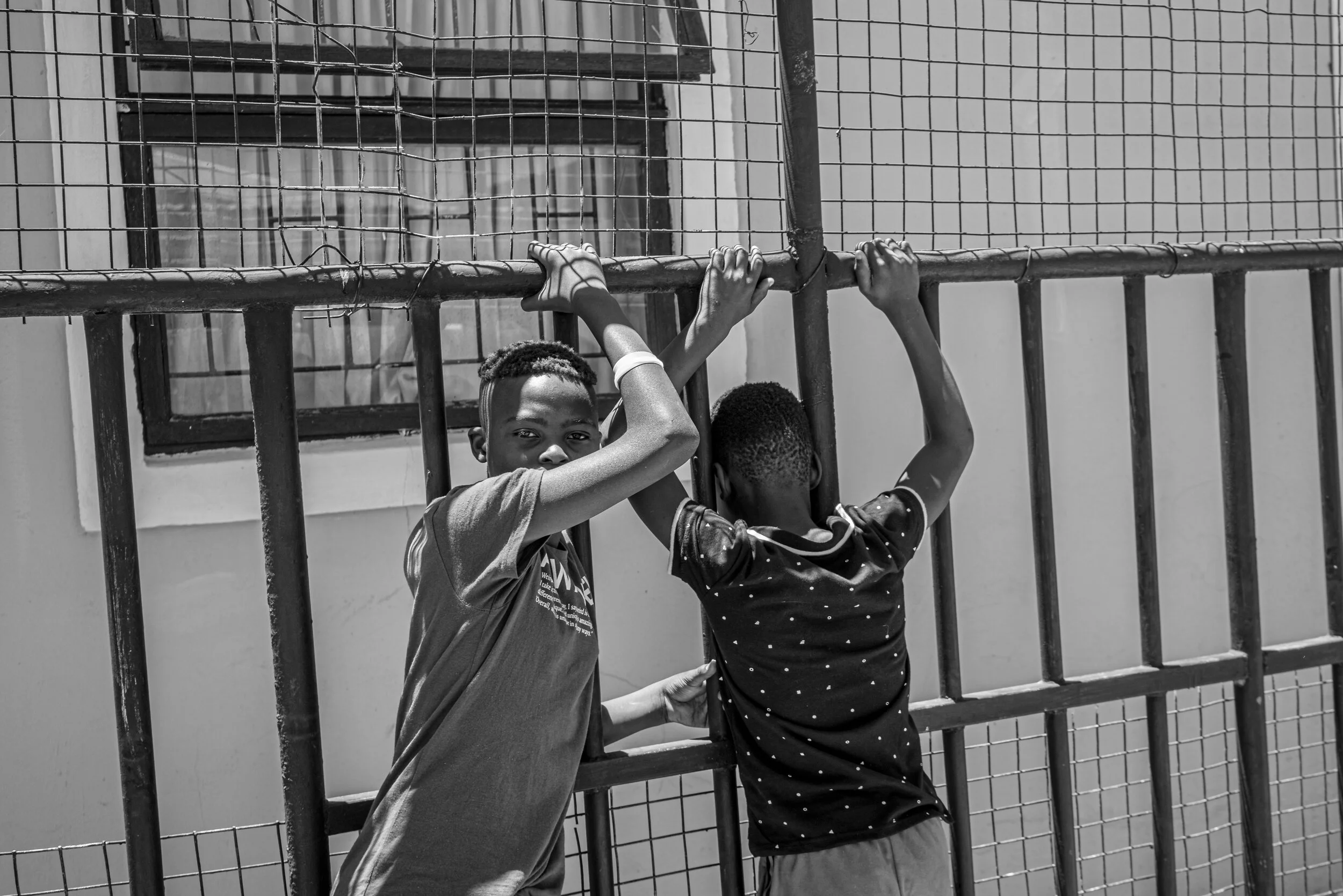

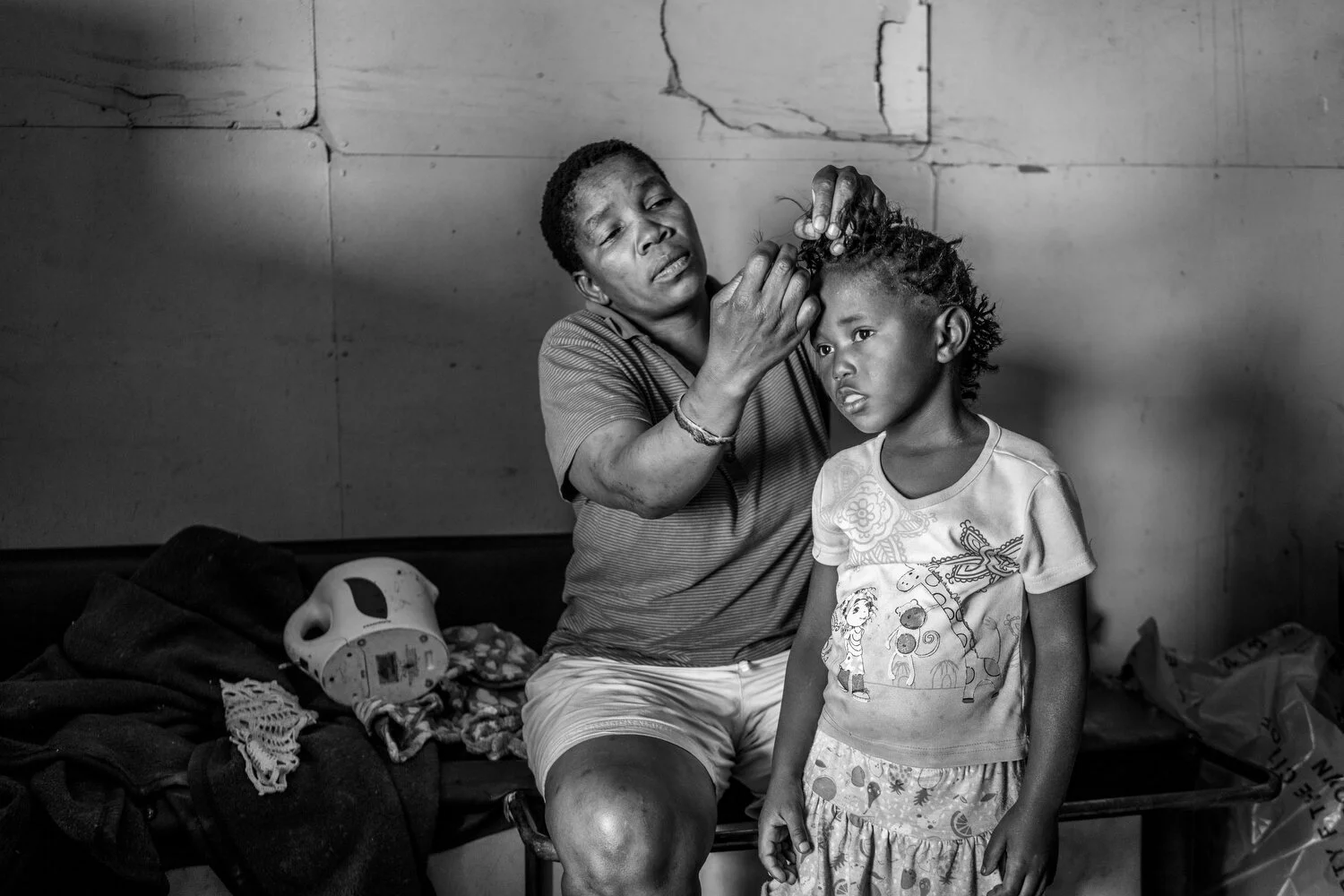
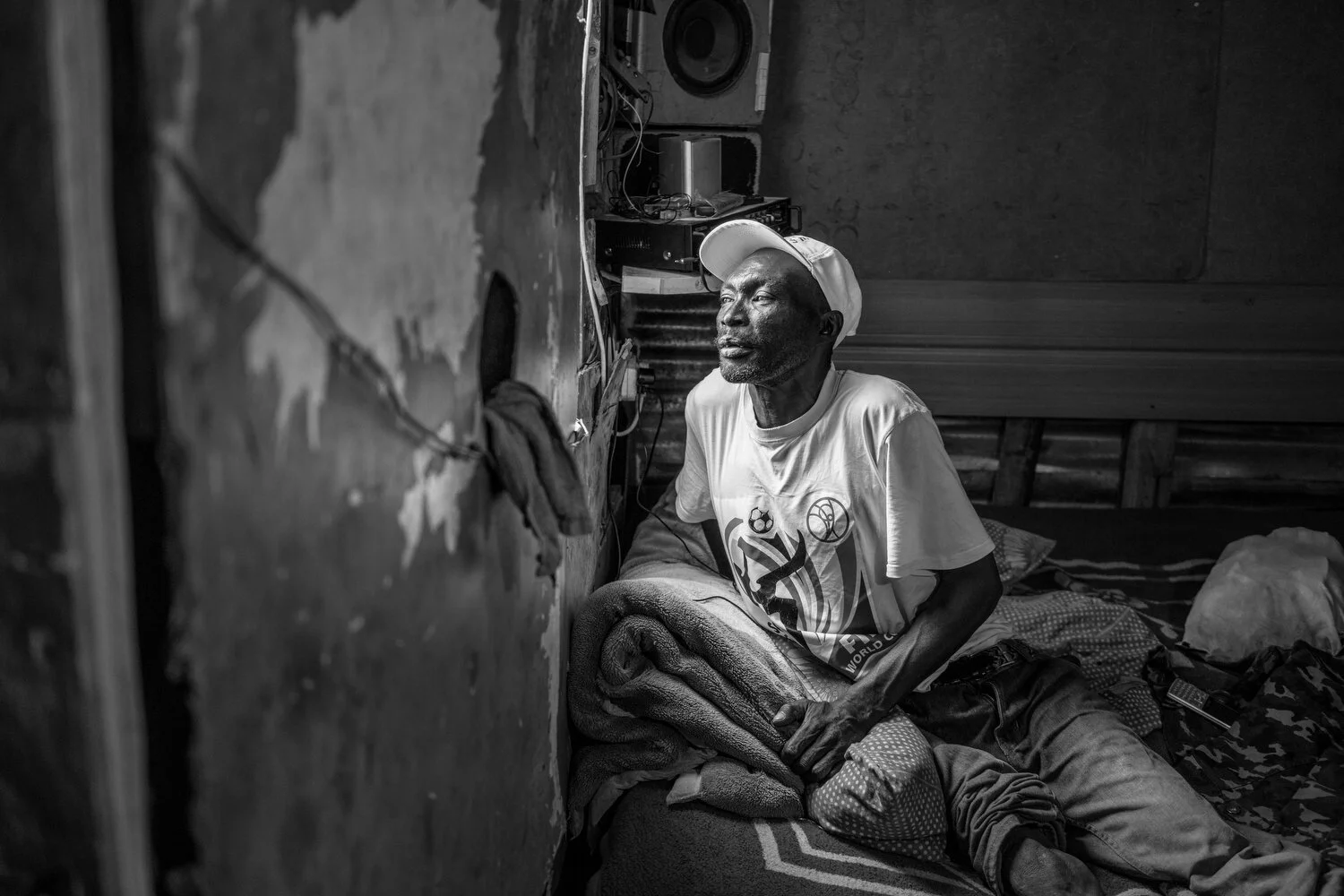


In 2019, over 3000 murders were committed in Cape Town, making it the 8th most violent city in the world. A closer look reveals that the violence is mostly centred in a patchwork of townships at the outskirts of the city. The area is home to 93 gangs with a total of 100.000 members. Crime rates are exceptionally high, civilians often get caught in the crossfire between gangs, and human rights organisations have estimated that one in three women living there has been raped.
During colonial times, the Dutch East Indian Company introduced racial segregation in Cape Town. This was continued when the British took over in 1795 and the formal Apartheid regime began in 1948. During the Apartheid period, the South African population was divided into three racial groups: 'Whites', 'Blacks' (or 'Native Africans') and Coloured people (Indians and people of mixed race). New legislation determined where one lived according to race, and Blacks and Coloured people were forcibly removed from their homes and moved into townships on the outskirts of the city. Although the Apartheid regime was formally abolished in 1990, the legacy of racial segregation has led to a deep-rooted situation of factual racial inequality. While some progress has been made, most Black and Coloured people continue to live in the townships, where socio-economic factors determined by the past still influence the path to full racial equality.

Khayelitsha, Cape Town, South Africa - 08/01/2019
Single mothers with a history of abuse rest in their room at a shelter ran by a charitable organization. The section is only accessible to women and children. The women are from a patchwork of townships at the outskirts of the city called the 'Cape Flats', they are survivors of rape and abuse. Some have also struggled with addiction to substances sold by the gangs active in their neighborhoods.

Khayelitsha, Cape Town, South Africa - 29/01/2019
A portrait of Tazm, who was raped three times in her life. When it happened the first time, she was just three years old. Several years ago, Tazm was raped at gunpoint by a group of gangsters in her neighborhood. Rights organizations estimate that one in three women living in the townships of Cape Town has been raped.
Tazm became addicted to Crystal Meth and Mandrax as a result of her traumas. She has found support in a community of other abused women at a local charitable organization as is not using anymore.

Khayelitsha, Cape Town, South Africa - 12/02/2019
A portrait of ex-gangster Keenan, showing his gang tattoo from the Young Weekend Spoilers. As a gang member, Keenan's job was to protect the gang's 'turf' from rival gangs. He says shootouts were common, his best friend was fatally shot and killed. Keenan broke away from the gang and is now participating in a voluntary re-education program ran by a charitable organization. Cape Town ranks as the 8th murder capital in the World.
Keenan grew up in Khayelitsha, a township in the Cape Flats. When he was 16, he got addicted to Mandrax and Christal Meth, which was given to him by the gangs that were active in his neighborhood. He says he joined one of the gangs to keep access to the drugs.

Langa, Cape Town, South Africa - 08/12/2018
A woman is hanging laundry in 'Langa', one of the oldest townships of Cape Town and one that is close to the more wealthy neighborhoods of the city surrounding Table Mountain (in the background). Langa was developed in 1927 so that Black South Africans could be forced from their homes into the segregated location. It was a place of much resistance during the Apartheid era.

Blauberg, Cape Town, South Africa - 29/12/2018
FLTR: Lauren, Kechineda and her daughter Veronique live on the streets in Blauberg, a wealthy neighbourhood near the beach in the North of Cape Town. Kechineda has lived on the streets for over 16 years and survives by begging at supermarkets for money or food. Poverty levels among mixed-race South Africans remain high at 41.6 percent, compared to 0.6 percent among white South Africans.

Dunoon, Cape Town, South Africa - 04/01/2019
Young boys hanging in the township of Dunoon. Being part of the so-called ‘born-free generation, they were born after the abolishment of the Apartheid regime. Although this came with much promise for equal opportunities, South Africa’s youth unemployment is still over 50%. Some young South Africans therefore turn to gangs, where money and status are easily accessible.

Khayelitsha, Cape Town, South Africa - 11/12/2018
A family has claimed a patch of land on the outskirts of the township Khayelitsha by marking it with branches and barbed wire. Unused land is often claimed by Black- and mixed-race South Africans based on the premise that historically it belonged to their ancestors, and it was taken away by the white minority during colonial times.
The government sometimes demolishes such establishments, but people keep building shacks in the hope that their settlements end up being legalized, as has happened with other townships. Until that time, residents do not have access to basic utilities and sanitary provisions.

Khayelitsha, Cape Town, South Africa - 08/01/2019
Mzimkhu is braiding the hair of her friend’s daughter in their house in Khayelitsha. Mzimkhu is HIV positive and a TB survivor. Research shows that racial disparities rooted in structural and contextual inequalities remain important factors for the maintenance of the HIV epidemic in the country.

Khayelitsha, Cape Town, South Africa - 11/12/2018
Phindile Sambatha in his home in Khayelitsha. He was born before the introduction of Apartheid. When Sambatha joined resistance to the regime he was persecuted because of it. During an attempt on his life, he lost both his legs. A hit-squat fired their weapons through the walls of his shack, hitting his legs and lower body. According to Sambatha 'racial inequality is not going away any time soon'.

Khayelitsha (Cape Town), South Africa - 08/01/2019
A portrait of Emes in her church in Khayelitsha. Emes went to the small church to find 'healing', the church provides traditional ceremonies to help people heal from trauma. After a while, the church took her in. Emes is now living and working there as a maid.